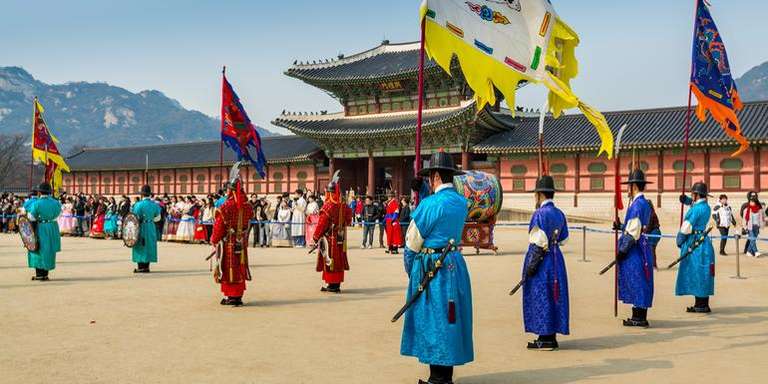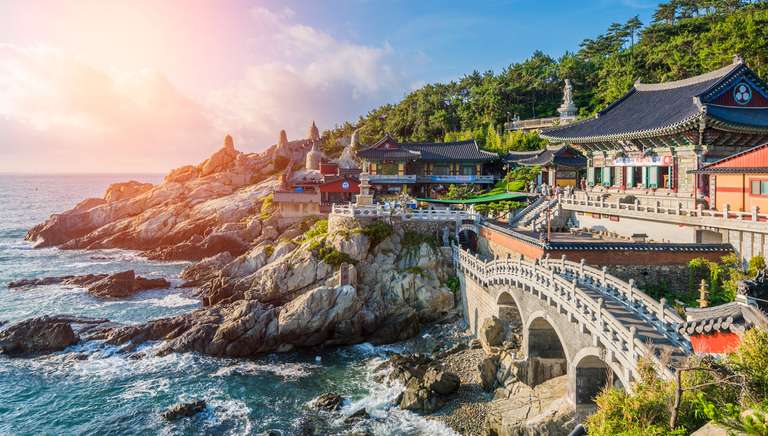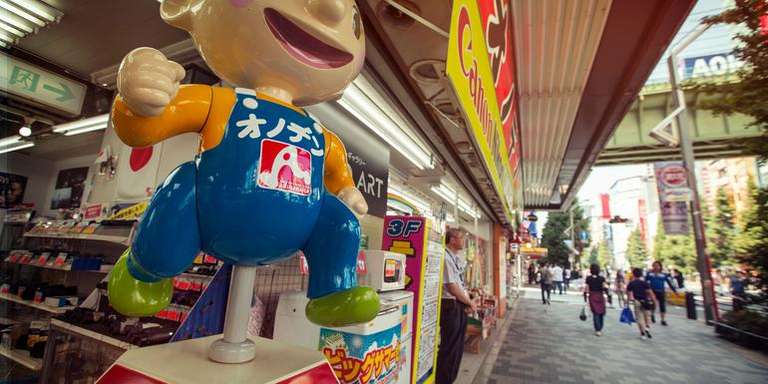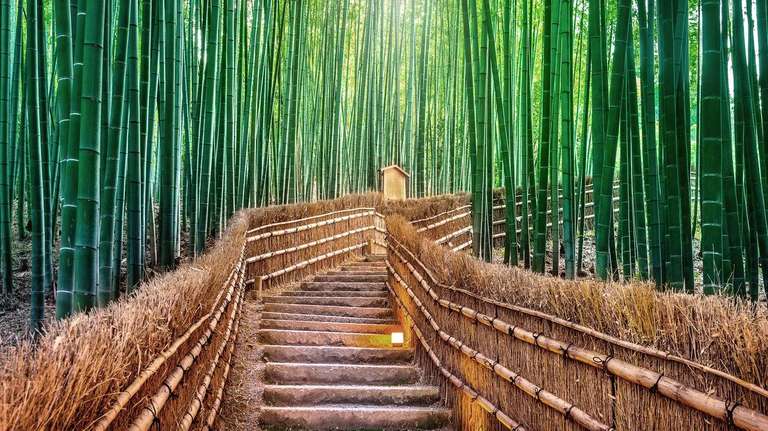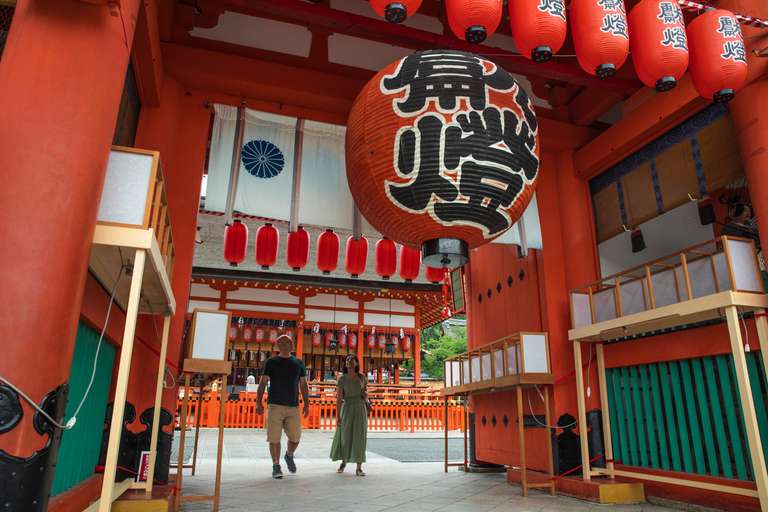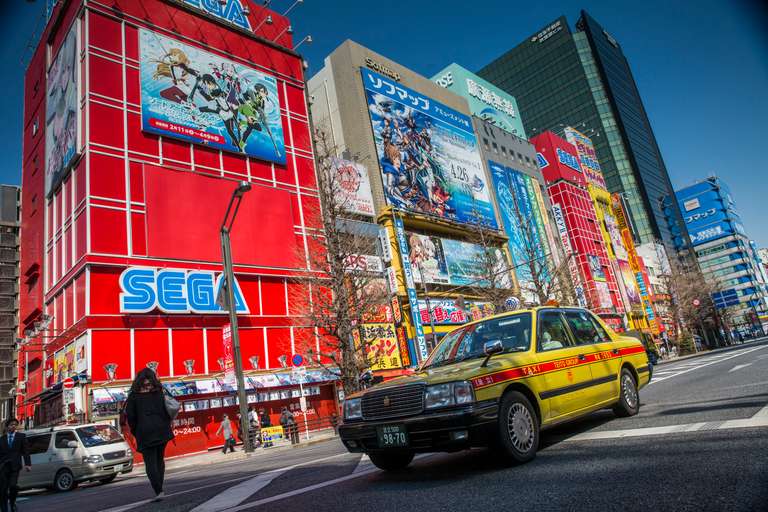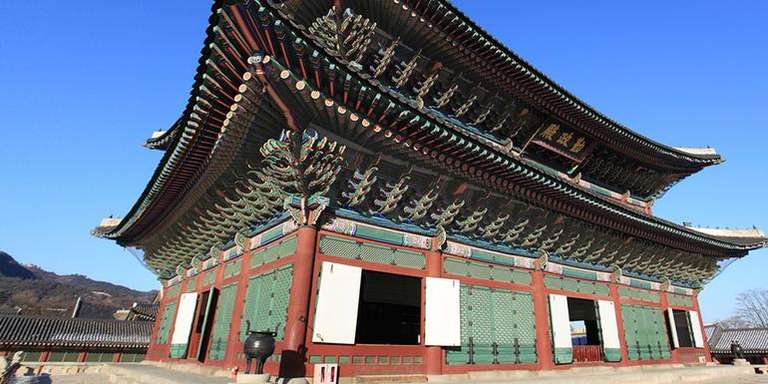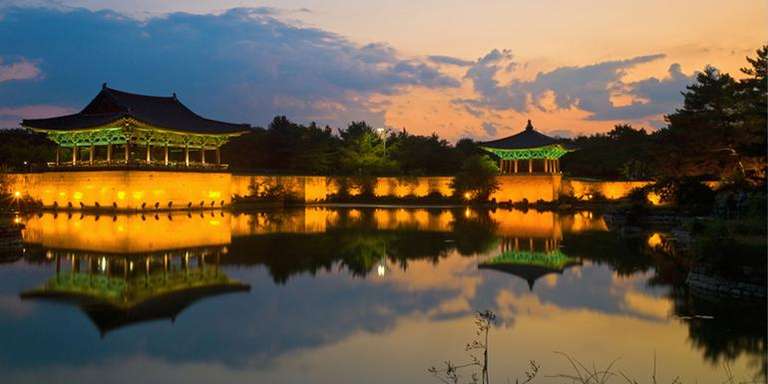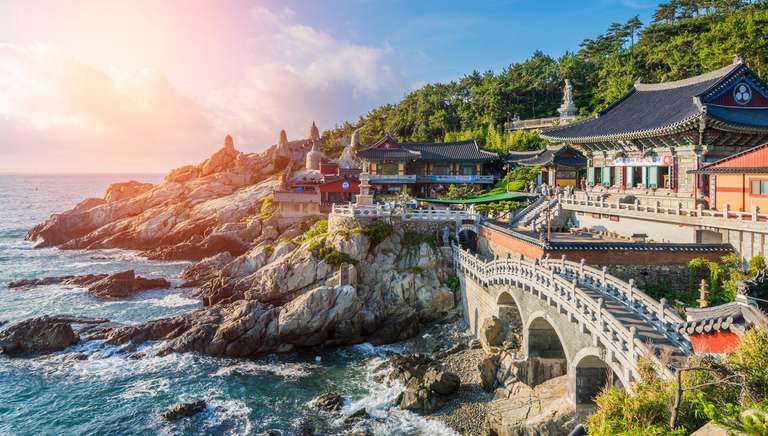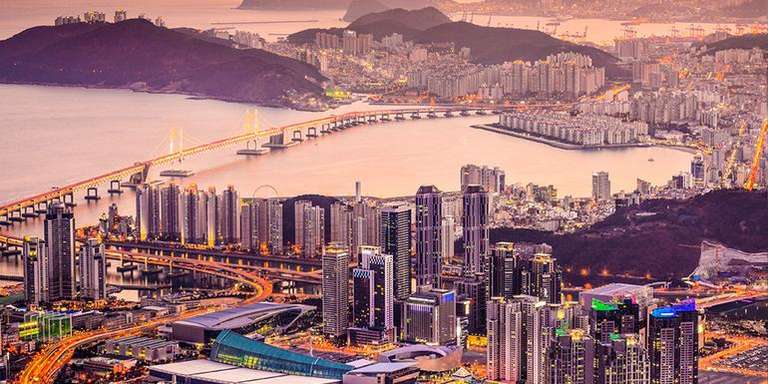Winter in South Korea: Weather, Destinations and Travel Tips

- Zoe C
- From
- Zoe C
- From
- Marcy T
- From
- Miguel A
- From
Weather and Temperature in South Korea During Winter

Winter in South Korea runs from December through February. During this period, temperatures typically drop below freezing, with the daily average ranging between -6°C and 3°C. In many parts of South Korea, the nights get even colder. So camping outside becomes next to impossible. Snowfall is also fairly common if you are visiting the central and northern regions of the country. The snow creates the perfect conditions for skiing, snowboarding and other fun winter sports.
South Korea rarely sees rainfall during the winter season, but there are high chances of strong winds. Typically, the winds are stronger on the western coast. So, it’s vital to check the weather forecast before heading out for outdoor adventure activities.
| December | January | February | |
| Avg high | -6°C (21°F) | -8°C (18°F) | -6°C (21°F) |
| Avg low | 5°C (41°F) | 3°C (37°F) | 5°C (41°F) |
| Rainfall (mm) | 25 | 22 | 23 |
For a more seasonal overview, check out our guide on the best time to visit South Korea.
Why visit South Korea in Winter
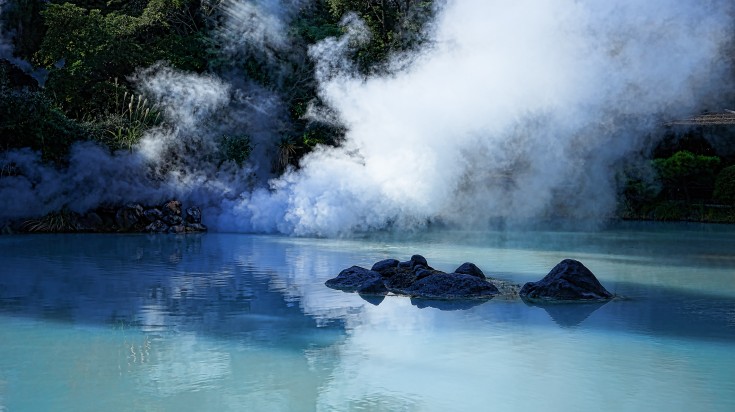
There are many reasons that make South Korea one of the top winter destinations. Here are many of the few reasons why you should plan a trip to South Korea during winter:
- Stunning winter landscapes: South Korea transforms into a winter paradise between December and February. Tour the country to marvel at the snow-covered mountains, frozen lakes and waterfalls, picturesque fields, blossoming cherries, and stunning urbanscapes.
- Winter sports: South Korea in winter is a haven for winter sports lovers. From skiing and snowboarding in resorts like Yongpyong and Alpensia to ice skating in Seoul's outdoor rinks, winter sports enthusiasts will be spoilt for choice on a trip to the country in winter.
- Festivals: Experience the vibrant energy of winter festivals in South Korea that provide a unique peek into the country’s rich culture and traditions. Witness the spectacle of ice fishing and try your hand at catching trout from frozen rivers in Hwacheon Sancheoneo Ice Festival. Another big winter event is the Pyeongchang Trout Festival, which offers a range of activities, including ice fishing, sledding and cultural performances.
- Hot springs and spas: Unwind in the country's many hot springs and spas, such as the famous Woljeongsa Hot Springs and Seorak Waterpia. Apart from providing a welcome escape from the biting cold, these springs are also known for their therapeutic properties.
Top 3 Destinations in South Korea During Winter
While destinations like Seoul and Busan regularly attract tourists visiting South Korea, there are several other beautiful sites that you should consider exploring. Here are some of the highly recommended tourist hotspots in South Korea during winter:
1. Gangwon Province
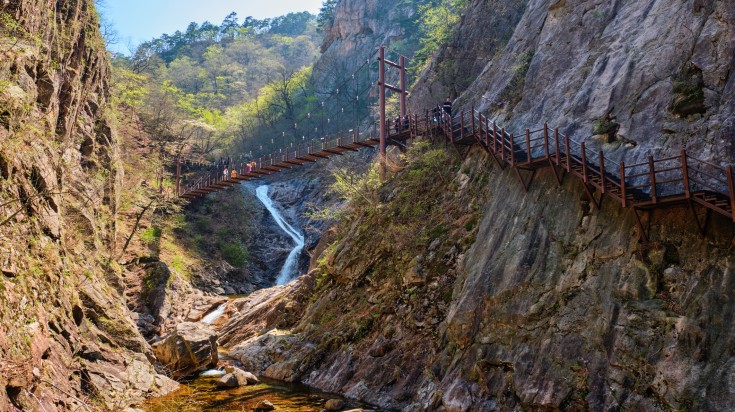
Located in the northeastern part of South Korea, Gangwon province is a winter paradise. Aside from the popular ski resorts in Pyeongchang, the region boasts scenic spots like Nami Island, a picturesque island known for its beautiful winter scenery and iconic tree-lined paths. The mountain village of Seoraksan is also a must-visit place, known for its stunning snow-capped peaks and hiking trails.
Major attractions: Alpensia Ski Resort, Seoraksan National Park, and Pyeongchang Trout Festival.
Pros:
- Gangwon Province promises excellent opportunities for skiing and other snow sports during winter.
- Winter is the best time to witness the stunning scenery and be a part of vibrant festivals in Gangwon.
Cons:
- You may have trouble finding your way around, as the road signs in the area are almost all in Korean.
2. Pyeongchang
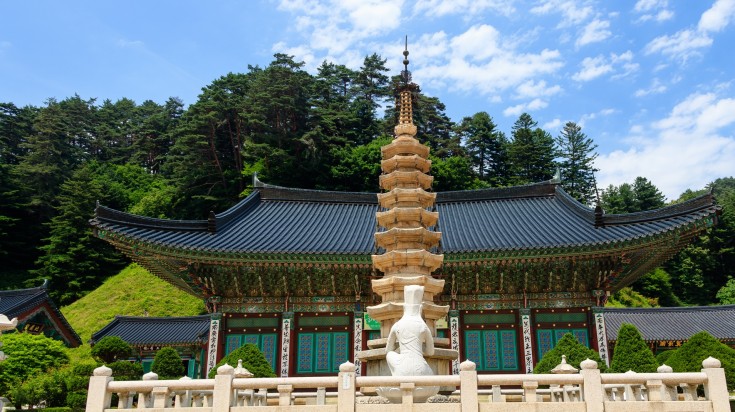
Pyeongchang is one of the most popular winter destinations in South Korea. Its ski resorts, including Alpensia and Yongpyong, offer world-class facilities and slopes for skiing and snowboarding. In addition, visitors can also explore the beautiful countryside, enjoy hot springs, and take part in various cultural activities.
Major attractions: Alpensia Ski Resort, Yongpyong Ski Resort, Odeaesan National Park, Jeongseon Rail Bike, Phoenix Snow Park, Hwaam Cave, and Woljeongsa Temple.
Pros:
- Pyeongchang has many hot springs and health centers that are best enjoyed during the winter season.
- Winter is one of the best times to immerse yourself in local culture and enjoy the festive atmosphere. Pyeongchang Winter Music Festival, which features captivating performances, is one of the top winter highlights of Pyeongchang.
Cons:
- Pyeongchang sees freezing temperatures during winter, which can be harsh for those who are not used to cold weather.
3. Gyeongju

As the ancient capital of the Silla Kingdom, Gyeongju is a treasure trove of historical and cultural sites. In winter, these attractions take on a serene ambiance. Explore the Unesco World Heritage Sites like Bulguska Temple and Seokguram Grotto, where the peaceful surroundings enhance the beauty of the architecture and stone carving. The tranquil atmosphere of Tumuli Park and Anapji Pond is also worth experiencing during the colder months.
Major attractions: Bulguksa Temple, Gyeongju National Museum, Anapji Pond, Seokguram Grotto, Yangdong Fork Village, Tumuli Park, and Daereungwon Tomb Complex.
Pros:
- You can take advantage of many hot springs which provide relief from the cold weather.
- With fewer tourist crowds around, you can explore the attractions at your own pace.
Cons:
- The cold temperatures may hinder your plans for outdoor activities and sightseeing.
Top Activities During Winter in South Korea

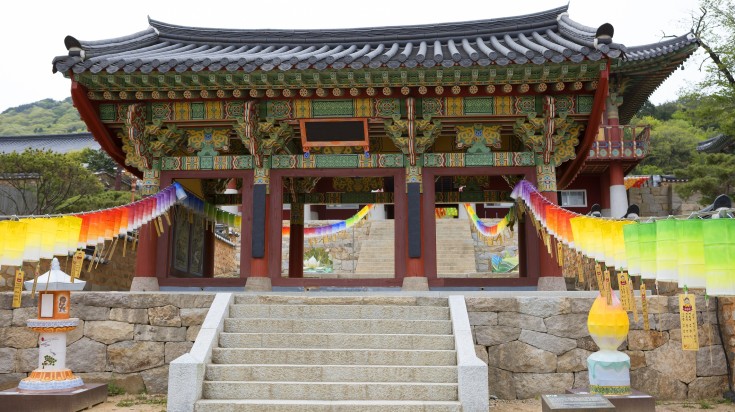
- Relax in hot springs and spas: South Korea is famous for its natural hot springs, known as “jimjinbangs”. Soak in warm mineral-rich waters and relax in saunas, a perfect way to warm up and unwind during the cold winter months.
- Enjoy skiing and snowboarding: One of the top winter activities in South Korea is skiing and snowboarding. The country boasts excellent ski resorts like Yongpyong and Alpensia that offer well-groomed slopes, modern facilities, and professional instructors. Other notable ski resorts include High1 Resort and Phoenix Park.
- Go on nature walks: Winter is a great season for energizing hikes and lovely nature walks in South Korea. Seoraksan, Jirisan, and Naejangsan national parks provide stunning paths with snowy panoramas and frozen waterfalls. Exploring these winter wonderlands allows you to reconnect with nature, breathe in the crisp air, and relax in the peaceful quiet of the great outdoors.
- Experience temple stay: Temple stays are the perfect way to experience and learn more about Korean Buddhism. Some temples provide specific retreat programs during winter, allowing participants to engage in meditation, Buddhist rites, and traditional temple activities.
Travel Tips for Winter in South Korea
- Dress in layers and wear appropriate winter clothing to stay warm and comfortable.
- Check the weather forecasts and plan your outdoor activities accordingly.
- Take advantage of the country's efficient public transportation system, which will help you navigate different regions conveniently.
- Bring a pair of good-quality boots with warm lining to protect your feet while hiking in the snow.
Winter in South Korea is a captivating season that offers a unique and memorable travel experience. From the snow-covered landscapes of Seoul to the ski slopes of Pyeongchang and the tranquil beauty of Jeju Island, there is something for everyone to enjoy. With proper winter clothing and careful planning, you can make the most of your winter adventure in South Korea.
For a truly unique and tailored adventure, connect with our travel experts who specialize in crafting customized trips to South Korea. Let us design a personalized itinerary, exclusively curated for you, ensuring an unforgettable journey through the enchanting wonders of this captivating destination.


